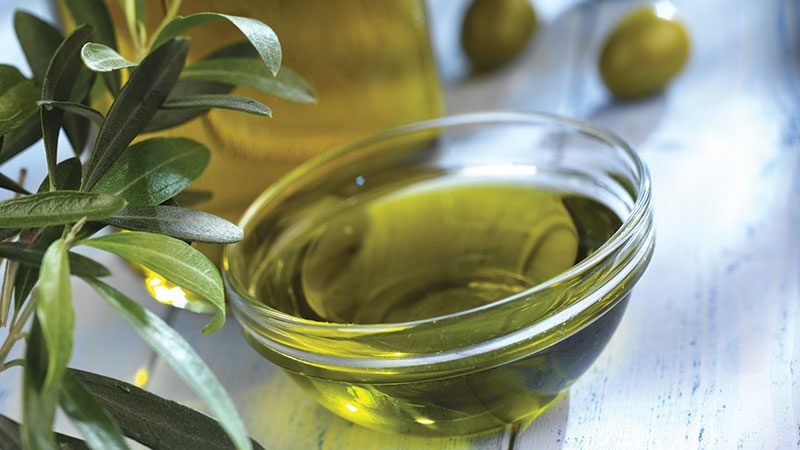How to choose the right cooking oil
This article was originally published in June 2023

Different oils fill different needs—for health, taste and cooking. Our bodies need a variety of healthy fats found naturally in different oils. This guide helps you choose what oils are best suited for specific cooking techniques or used raw. It’s one of several cooking guides available on the PCC website; click here for more.
Types of oils
Natural fats contain varying ratios of three types of fats:
Saturated fats are solid at room temperature and very stable. They resist oxidation, so they often can tolerate higher temperatures.
Polyunsaturated fats are liquid at room temperature and generally the least stable for cooking. They oxidize easily and are found in safflower and sunflower oils, if not labeled for high heat or “high oleic.”
Monounsaturated fats also are liquid at room temperature and generally are more stable than polyunsaturates. They’re found in canola, nuts and olives.
Pressed vs. Chemically Extracted
PCC buyers seek out culinary oils that are mechanically pressed from the seed without using chemical solvents. These also are referred to as “expeller pressed.” Olive, avocado and walnut oils, for example, are from soft fruit or nuts that need only expeller pressing and centrifuging. They may be labeled “cold-pressed.” Hard oilseeds, such as soy or canola, usually require some pre-treatment such as steam before pressing, but the brands at PCC still do not rely on chemical solvents. In contrast, mass-market oils generally are extracted with toxic solvents such as hexane. These oils then undergo harsh treatment to remove the solvent. More chemicals, very high heat and straining are used to deodorize and bleach the oils—rendering them inferior in taste, fragrance, appearance and especially nutritional quality.
Storing oils
Air, heat and light cause oils to oxidize and turn rancid. Natural oils should smell and taste fresh and pleasant. Can’t tell? If in doubt, throw it out! For maintaining quality of flavor and nutrition, it is best to store oils in an airtight glass bottle in a cool, dark place. For oils that will sit unused for longer than one month, storing in the refrigerator is ideal.
Unrefined oils
Unrefined oils are filtered only lightly to remove large particles. Some, such as sesame or olive oil, may appear cloudy or have visible sediment after sitting. This does not compromise quality. Unrefined oils have more pronounced flavors, colors and fragrances than refined oils. Like unrefined whole grain flours, unrefined oils are more nutritious and have a shorter storage life than refined. Unrefined oils are best used unheated in dressings or with low heat sauteing or baking. Their natural resins and other beneficial particles burn easily and develop unpleasant flavors and unhealthful properties if overheated. If you choose to bake with unrefined oils, expect the flavor to be more pronounced.
Refined oils
Naturally refined oils are more thoroughly filtered and strained, usually with some additional heat but without harsh or damaging chemicals. Refining reduces the nutrient level and flavor. It also removes particles and resins and makes naturally refined oils more stable for longer storage, more resistant to smoking, and a good choice for high-heat cooking and frying. Refined oils recommended for high-heat cooking and deep-frying are “high oleic” safflower, sunflower and peanut oil. These oils are from varieties high in monounsaturated fats, which are well-suited for high heat.
FAQS
Should I heat oil to the smoke point? No. If oil smokes in the pan, discard it. The temperature is too high. Clean the pan and start over at a lower temperature. The point where oil smokes signals that the oil has been damaged and potentially cancer-causing properties have formed.
Can I use olive oil for all of my cooking? No. Extra virgin olive oil deserves its reputation as a healthy culinary oil. It contains heart-healthy monounsaturated fats and phenols—protective compounds that provide numerous benefits. But to maximize the health benefits, we recommend using it raw for salads and dips or for lower-heat cooking.
Which oils are genetically engineered? Soy, corn, canola and cotton are the most common genetically engineered (GE) crops and all are cooking oil sources. PCC does not sell any of these oils, except canola oils that are Certified Organic or Non-GMO Project Verified.
I’ve heard I should not use canola oil. Why? It is true that more than 90% of the canola grown in the United States is GMO, but organic and non-GMO sources are available at PCC. Canola was bred from rapeseed, which 30 years ago contained elevated levels of erucic acid considered harmful to humans. Today’s canola contains less than 2% of this controversial fatty acid.
Click the link to view the whole chart.
Choosing the right cooking oil